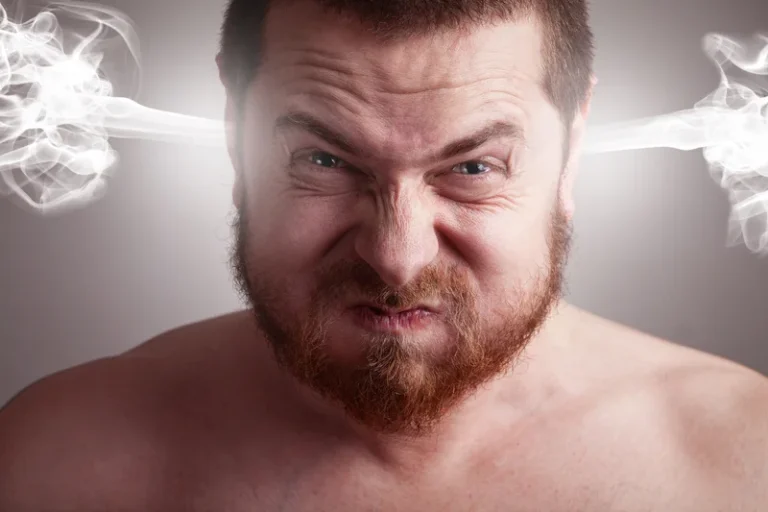How Alcoholism is Linked to Anger

We all know the picture; two grown men are throwing it down at the pub after a long night of drinking and merriment or, even worse, the physical abuse stereotype of having alcoholics as fathers who come home to their family angry after a night out drinking. It begs to ask whether alcohol somehow makes people more furious, more likely to abuse others, or are they just naturally angry people who have a drinking habit on the side? What is the connection between alcoholics being angry, and why are people who drink more likely to be seen angrier with the capability of making more rash decisions than those who are sober?
What is anger
The first step in knowing precisely whether a link exists between anger or, more explicitly, aggression lies in understanding precisely what anger means. According to the American psychological association, “anger is an emotion characterized by antagonism toward someone or something you feel has deliberately done you wrong.” In comparison, aggression is any behavior that harms others, leading to physical or psychological abuse.
The main difference between anger and aggression is based on the concept of “harm.” Aggression is directed towards harming someone else, while anger can be directed towards something or someone without harming them or destroying property. Anger can be good and is entirely normal in the right amounts. Anger can help individuals make bold decisions in a time of danger and increase awareness of their environment. Most importantly, being angry can be a way for people to release built-up emotional stress. Everyone gets angry, but the problem lies with getting excessively angry, which can, in turn, lead to aggression.
When aggressive behavior kicks in, most of the characteristic behaviors of a stereotypical alcoholic and linked abuse can be seen.


Take back control of your life and start on the road to recovery now.
The Connection Between Alcoholism and Anger
People who take drink regularly aren’t necessarily alcoholics. Alcoholism is characterized as an addiction to alcohol use or dependency, while alcoholics are people battling alcoholism.
Alcohol causes some people to behave impulsively and aggressively, which in the long run may impair their behaviors. To understand the extent to which alcohol can directly affect a person’s emotions and actions, it is crucial to look at its influence on the central nervous system.
The science behind alcohol use and anger
A study published in ‘Cognitive, Affective & Behavioral Neuroscience’ on alcoholics showed that alcohol affects the “prefrontal cortex,” the brain region associated with social behavior. According to the study, we all have primitive personalities. This part of the brain helps us censor evolutionary success and maintain social education. Alcohol consumption cancels this evolutionary filter, in many cases leading the individual to aggressive and abuse inclined behaviors as seen in alcoholics.
The activities of the cerebral prefrontal cortex change ostensibly when alcohol is ingested. This limits social self-control, bringing out the most instinctive and primitive response to situations.
How do people express anger under the influence of alcohol?
We can now see how alcohol intoxication brings out people’s natural tendencies to express anger. Alcohol increases the likelihood that some alcoholics, particularly those who tend to be angry and express their anger externally, become aggressive when provoked. For example, suppose an individual tends to express their anger outwardly. In that case, alcohol will increase the volume of expressing anger more frequently and intensely. In this sense, personality plays a role. Someone who is naturally impulsive or angry will be more likely to be aggressive when drunk.
A more intense response will most likely occur when the provocation against the drinker is strong and less likely when the individual is experiencing a low provocation and is sober.
In a nutshell, the frontal cortex can be permanently damaged by alcohol addiction. This part commands, among other things, self-control and behavior in society, as well as targeted actions, reasoning, and problem-solving. Alcohol addictions can therefore lead to a decline in these mental capacities.
Increased impulsivity
This increased impulsivity may make it easier for people to get angry and react aggressively. In general, the more you drink, the more angry and impulsive people are. Slight irritations can then turn into explosions of aggression, either verbal or physical.
Also, the more we drink, the less we can assess the social situation in which we find ourselves. There is then a greater risk of misinterpreting the behavior of others. So, for example, it will take a simple accidental push for a provocation, and a little taunt could be interpreted as disrespect.
Disinhibition
Alcohol doesn’t just intoxicate; it is also uninhibited. This is why, when people drink alcohol, they make rash decisions much more easily and act more quickly than usual. Alcohol is often a trigger for alcoholics, particularly in violent conflicts: mischief, bar quarrels, domestic violence, road assault, vandalism, and gratuitous violence.
The disinhibition caused by alcohol also pushes an individual to overestimate himself and try intimidating or even attacking others. On the other hand, under the influence of alcohol, people tend to think less about the long-term consequences of their actions, leading to more impulsive or aggressive behavior.
Addiction
A dependent on alcohol (addiction) may feel a strong urge to drink when their body demands it. It is then a morbid need, a “thirst for alcohol.” However, if they cannot drink when this happens, they will likely become particularly irritable or overwhelmed. These situations increase the likelihood of impulsive or aggressive behavior. Therefore, it is advisable to seek help if experiencing alcohol addiction.
Alcohol And Violence in Public Spaces
Almost half of the acts of violence committed in public spaces are due to alcohol. The majority of these acts of violence under the influence of alcohol consist of public disorder, altercations, and bodily harm. The perpetrators are usually referred to as angry young boys and men.
The above issues prompted the WHO “to consider that alcoholism occupies an important place in situations of interpersonal violence,” testifying to a real need to communicate about it.
Consequently, associations are asking for the implementation of several measures such as:
- Measures to know the extent of the phenomenon: monitoring register of violence linked to alcohol, and psychotropic drugs, victimization and abuse studies, etc.
- Measures aimed at reducing overall consumption: minimum price per unit of alcohol, control of advertising and marketing, and accessibility of treatment.
- Risk reduction measures in areas and places where consumption is massive.
- Measures towards violent consumers: contact, reinforced follow-ups and obligation of care.
- Measures for victims: support against addiction if they consume alcohol, family mediation measures, even family therapy, and other treatments.
Reducing excessive alcohol consumption would go a long way in preventing violence in public spaces and positively impact safety. To this end, it would be desirable that the government strengthen collaboration with different partners to solve this issue.

Alcohol and Domestic Violence
Alcohol consumption significantly increases the risk of being involved in a violent situation, whether victim or an alcoholic.
According to the study “Intimate partner violence and alcohol,” in about 1⁄4 of couples, violence is always accompanied by alcohol consumption. Moreover, a close look reveals that drinking alcohol increases the likelihood of physical aggression in most relationships.
In recent research, scientists studied 67 students. Each student was either engaged or in a relationship with partners classified as alcoholics. The research revealed that men with poor self-control and anger management issues experienced a higher risk of physical aggression leading to domestic violence after drinking alcohol. It further noted a spike in sexual aggression when accompanied by alcohol, even in men with good self-control and anger management skills.
Therefore, all alcoholics must resort to treatments and therapy or counseling in a relationship. This will help protect their loved ones from suffering from violence and abuse at their hands.

This can be a difficult journey, but you don’t have to go it alone. Let us be your guide and provide you the environment needed to regain control of your life and begin the path to recovery.
Getting Help
If you or your loved ones need help overcoming alcohol-induced anger or abuse but feel fear or discomfort, join us at ecosoberhouse.com. We will help you get back on the road to recovery. There’s no wrong time; contact us today.




